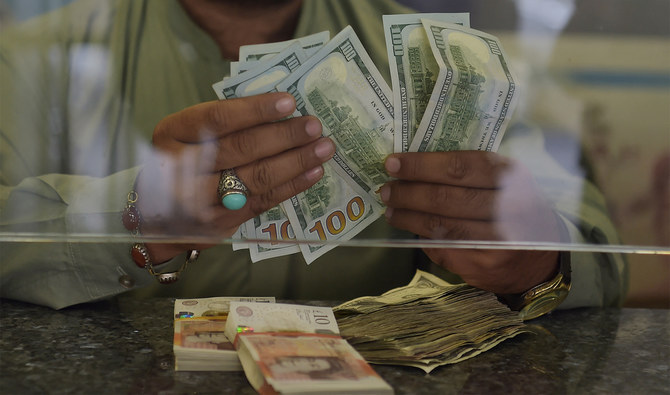KARACHI: A leading global credit rating agency said on Friday Pakistan’s newly announced federal budget was likely to help the country with its ongoing negotiation with the International Monetary Fund (IMF), though it highlighted the country’s weak debt affordability and challenge of keeping economic reforms on track.
Moody’s Investors Service issued a brief assessment of Pakistan’s economy two days after Finance Minister Muhammad Aurangzeb presented the $67.76 billion federal budget in which he kept some high ambitious revenue generation targets.
The global agency noted the government sought to achieve quicker fiscal consolidation through increase in revenue, adding their were little spending containment measures.
“The announced budget will likely support Pakistan’s ongoing negotiations with the IMF for a new Extended Fund Facility (EFF) program that will be crucial for the government to unlock financing from IMF and other bilateral and multilateral partners to meet its external financing needs,” it said. “However, it will be the government’s ability to sustain reform implementation that will be key to allowing Pakistan to meet its budget targets and continually unlock external financing to meet its needs, leading to a durable easing of liquidity risks.”
“A resurgence of social tensions on the back of high cost of living (which may increase because of higher taxes and future adjustments to energy tariffs) could weigh on reform implementation,” it added. “Moreover, risks that the coalition government may not have a sufficiently strong electoral mandate to continually implement difficult reforms remain.”
Moody’s noted the government had set a challenging target to increase federal government revenue to PKR17.8 trillion, about 46 percent higher from a year ago.
It noted that this increase was led by a 40 percent increase in tax revenue that the government wanted to achieve through a combination of new taxes and stronger nominal growth.
“At the same time, the budget is targeting an overall federal government expenditure of PKR18.9 trillion, about 25 percent higher than a year ago,” it said. “The increase in expenditure reflects lack of significant cost-containment measures and Pakistan’s very high interest payments.”
It maintained the government had been spending more than half its revenue on interest payments, “indicating very weak debt affordability which drives high debt sustainability risks.”
“Having a significant share of its budget allocated toward debt payments will constrain the government’s capacity to service its debt while meeting essential social spending and infrastructure needs,” it added.




















